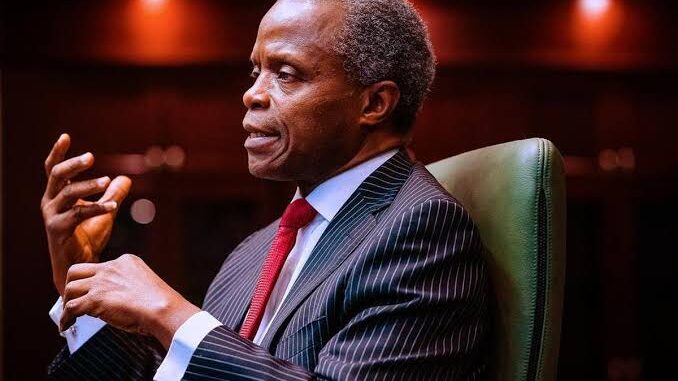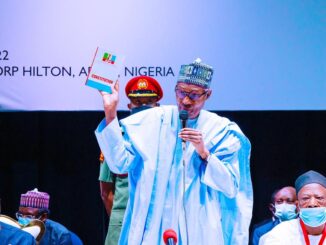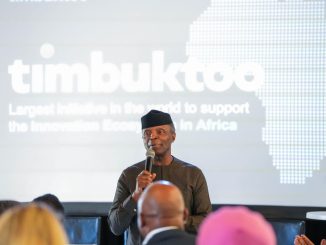
By Marvellous Nyang
May 9, 2025
Former Nigerian Vice President, Professor Yemi Osinbajo, has issued a clarion call for justice systems to be redesigned around the needs of ordinary people, not entrenched bureaucracy.
He made this assertion during a high-level international dialogue hosted by the Hague Institute for Innovation of Law (HiiL) at the iconic Peace Palace in The Hague, Netherlands.
The event, themed “Why Justice Matters,” brought together global legal minds to explore how justice delivery can be more inclusive, accessible, and responsive.
In a robust exchange with HiiL’s former CEO Sam Muller and current CEO Jude Ilo, Osinbajo focused on the hidden burdens people face when denied fair access to legal systems.
“There are economic and social costs when justice is out of reach,” Osinbajo said. “Inaccessible legal systems don’t just frustrate the vulnerable, they undercut trust in governance and hinder national development.”
He argued for a reimagining of justice that places citizens at the centre, a framework he described as people-centred justice.
This approach, he noted, prioritises resolving the legal challenges people face in their daily lives, such as land disputes, labour rights, and family matters, rather than being fixated on rigid procedures.
“The goal should be to remove the risks, the hidden penalties, and emotional burdens that ordinary people endure in their search for justice,” he emphasised.
ALSO READ: Osinbajo calls for collaboration with Global South on Climate Change at UK forum
“If we are serious about building inclusive and prosperous societies, we must start by making justice affordable, transparent, and effective.”
Osinbajo’s intervention comes as international attention increasingly turns to legal innovation and human-centred reform.
HiiL has led global efforts to rethink legal systems so that they serve the public more efficiently, with special focus on vulnerable populations.
Set within the Peace Palace, a globally recognised symbol of international law and diplomacy, the dialogue provided an apt platform for charting a new course in justice delivery for the 21st century.




